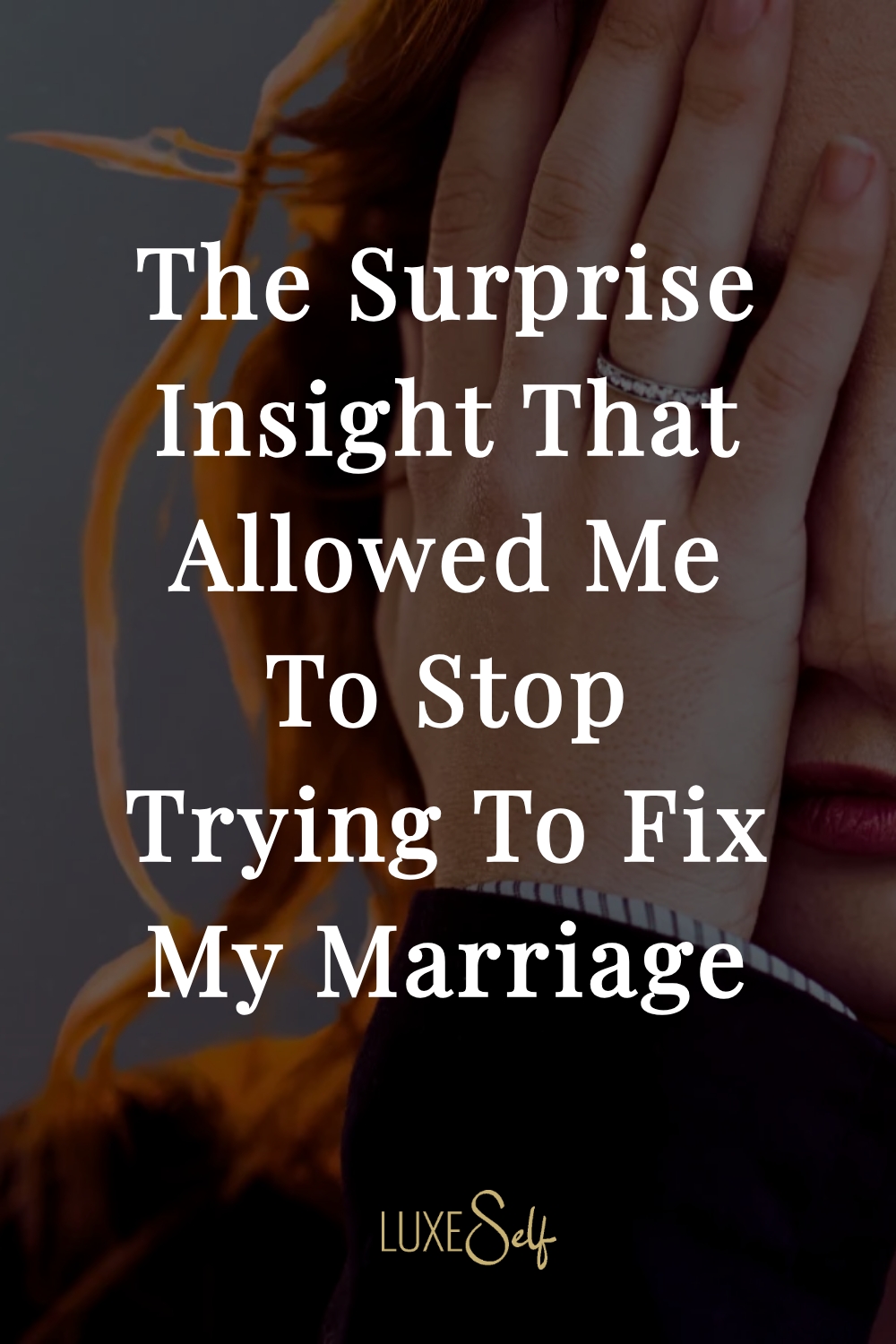In November of 2015, right after my husband left, I became a daily fixture at possibly the smallest gym in mid-Missouri.
I had two reasons for working out, and vanity was definitely near the top of the list. If I was going to win him back, looking fitter certainly couldn’t hurt.
But vanity aside, my mental health felt shaky so dragging myself to the gym became one of the few reliable ways to keep the depression I felt looming in the background from taking over.
One morning, while dragging myself through cardio and reading Byron Katie’s I Need Your Love, Is It True?, a passage stopped me cold.
A woman described how her husband had left her for their next door neighbor. By recognizing that her thoughts about the situation were not true, she got out of sorrow and realized she could love her husband whether he was with her or not.
I was struck by an insight so intense that I almost fell off the elliptical machine.
She could love her husband whether he was there or not.
That’s when I realized the root of everything: I didn’t just want my husband back.
I needed him to love me, because I thought his love was the only proof that I was lovable. And I believed that if something was wrong in the relationship, it meant something was fundamentally wrong with me.
No wonder I was in so much pain. I wasn’t just grieving the loss of my marriage— I was fighting to keep my self-worth from collapsing.
Before this moment, I did not understand where my own feelings came from. I thought my happy, contented, loving feelings in a relationship came from the other person.
If my husband behaved how I wanted, I’d look at our relationship, judge it positively, and feel happy and in love.
But the minute something felt off, I immediately assumed something was deeply wrong with me. Feeling good wasn’t just impossible— it seemed irresponsible— until whatever I thought was wrong got fixed.
This mindset meant no relationship problems, however minor, were acceptable. Every issue felt like an emergency, proof something was very, very wrong that needed fixing right away.
That’s why even the slightest hint of trouble triggered my internal alarm to spike straight to “OMG MUST FIX THIS” panic level 11.
This made me a difficult, needy, critical partner and a hard person to divorce.
I didn’t realize it at the time, but the act of getting married had ratcheted up the seriousness of our relationship to an intolerably heavy level. It was only a matter of time until I strangled the whole thing.
And that time had come.
Which is why, after he left, the only thing that made sense was to singlehandedly fix everything and make him love me again. Whatever it took.
Since feeling good again was impossible without pulling off this miracle, I had to fix our marriage and somehow ensure he’d behave perfectly— forever. No pressure.
No wonder I had been so miserable. I was treating our relationship like it was life or death. No wonder my husband wanted nothing to do with me.
I couldn’t handle losing his love, because I thought his love was the only proof I was lovable, as though my worth disappeared with him.
And then, in a flash, I saw it: the happy, loving feelings didn’t come from him. They came from me.
All this intense suffering was mine too.
I realized I could feel the warmth of loving him any time— whether he was there or not. That feeling had always come from me.
Suddenly my possessiveness and terror seemed absurd. Grief over the loss made sense, panic did not.
I stopped pedaling and burst out laughing. Something deep inside me let go. With the illusion broken, I could finally stop fighting reality.


